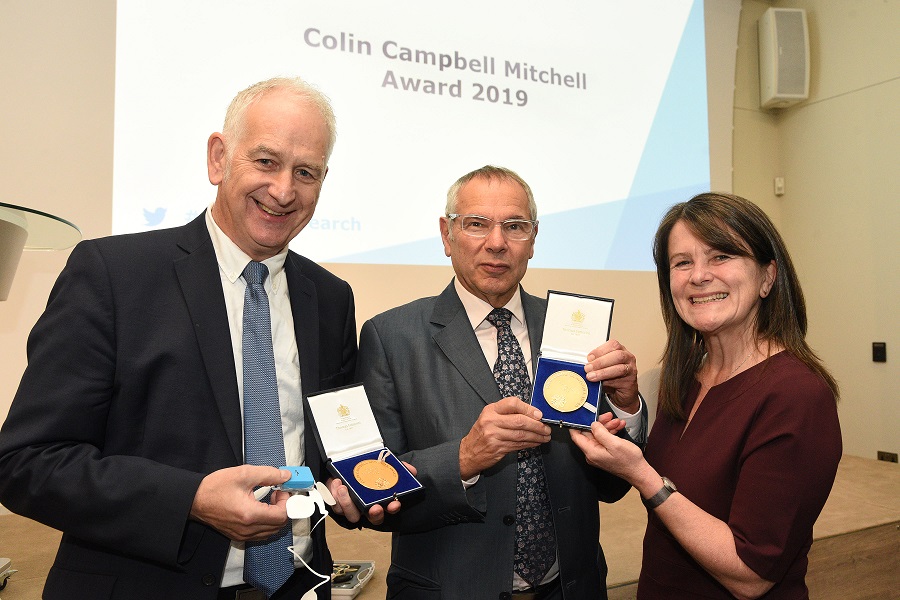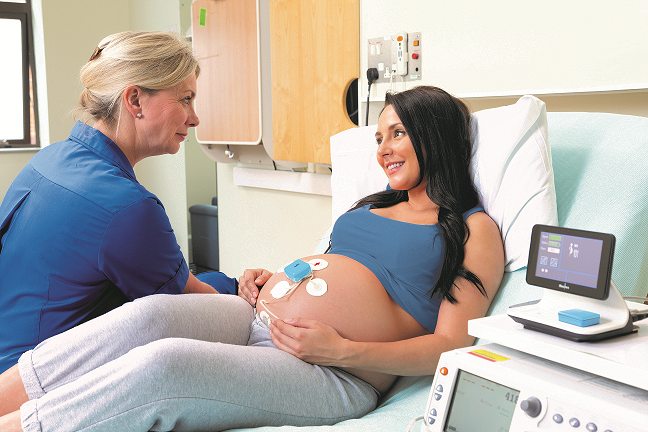
November 14, 2019, by Katie Andrews
Faculty of Engineering enjoys two weeks full of awards
Over the last two weeks the University of Nottingham’s Engineering faculty has won a spate of awards for their innovations. The awards span a number of areas, including healthcare and housing, demonstrating the far-reaching impact of the University’s research.
Professor Barrie Hayes-Gill and Professor John Crowe from the Department of Electrical and Electronic Engineering picked up two awards for the development of the world’s first wireless foetal monitor, the Monica Novii ™ Wireless Patch System.

Their team – which included Terence Martin from Monica Healthcare; Kanwaljit Bhogal, Dr Jean-Francois Pieri, and Dr Carl Barratt from GE Healthcare – received this year’s Colin Campbell Mitchell Award from the Royal Academy of Engineering. The award is given annually to an engineer or small team of engineers who have made an outstanding contribution to the advancement of any field of UK engineering. You can read the full story here.
The team then picked up the Healthcare Technology award from the Institution of Engineering and Technology (IET).
Dr Meghann Batten, Director of Nurse-Midwife Hospitalists at Henrico Doctors’ told the IET: “The device has improved our ability to offer true freedom of movement to our patients labouring without anaesthesia. Even something as simple as getting up to go to the bathroom without having to request someone to remove the monitor cables, provides women with a sense of autonomy and privacy.
“Labour positions including squatting, sitting on a labour ball, leaning over or on hands and knees, often result in loss of tracing with traditional monitoring. Once the device captures the heart rate, women are able to move as they need to without being asked to adjust their position so that we can improve tracing.”

Next, trade magazine, The Engineer, held its annual Collaborate to Innovate awards, where the University’s Faculty of Engineering won three out of seven available categories.
Judged by a panel of leading UK engineers, winning entries had to demonstrate that they were innovative, collaborative and likely to have an impact in their field of application.
Project SCENe (Sustainable Community Energy Networks) won The Engineer’s Energy and Environment category. Led by Professor Mark Gillott in the Department of Architecture and Built Environment, a new-build housing estate at Trent Basin generates, stores and uses electrical power for the community’s benefit. Read the full story.

The winner in The Engineer’s Information, Data & Connectivity category was GeoSHM (GNSS and Earth Observation for Structural Health Monitoring). The project, led by Professor Xiaolin Meng, Director of the Sino-UK Geospatial Engineering Centre, uses multiple space technologies combined with in-situ sensors to provide a real-time picture of bridge movement and stresses. Read the full story.
Two of the Faculty of Engineering’s teams were entered into the Manufacturing Technology category but there could be only one winner. Professor Ed Lester’s SHYMAN (Sustainable Hydrothermal Manufacturing of Nanomaterials) project triumphed, which has developed a cleaner process to manufacture nanomaterials in large volumes. Read the full story.
Narrowly missing out on an award was Professor Richard Leach’s Micro-photogrammetry for additive manufacturing project with Taraz Metrology.
Check out the videos below to discover more about the project:
A short video outlining the Manufacturing Metrology Team’s univeristy spin-out company Taraz Metrology:
Hear from Professor Richard Leach and Matthew Hutchinson from the Manufacturing Metrology Team and Ralph Weir of Taraz Metrology:
No comments yet, fill out a comment to be the first

Leave a Reply